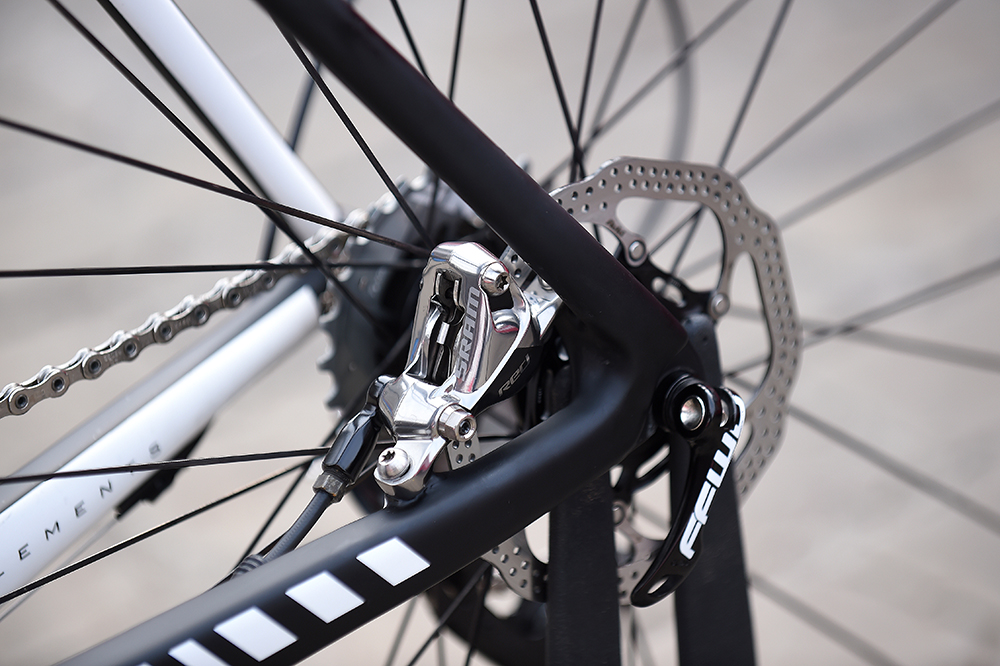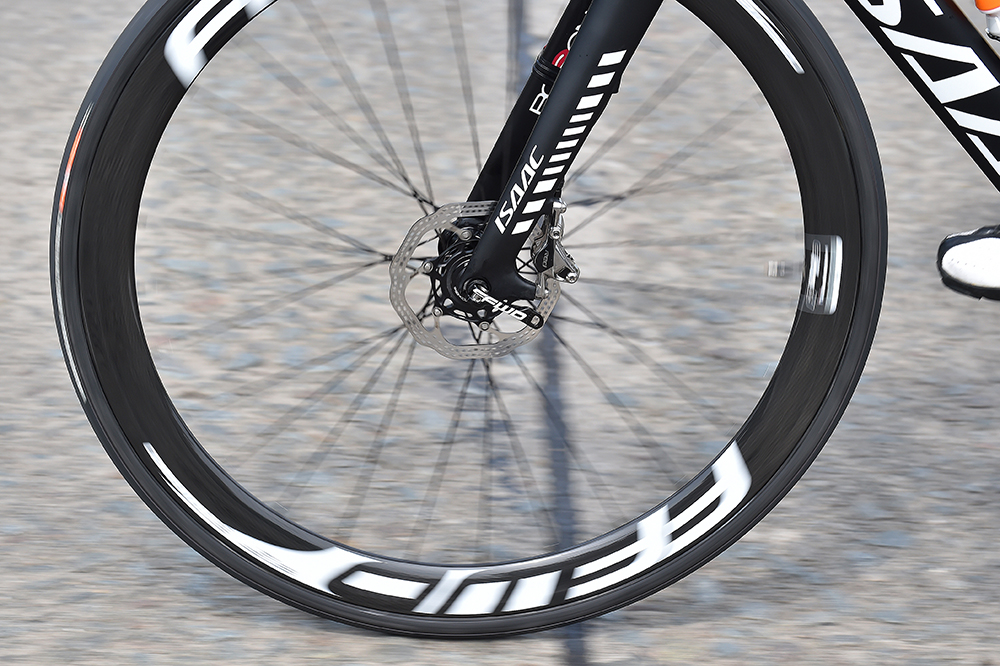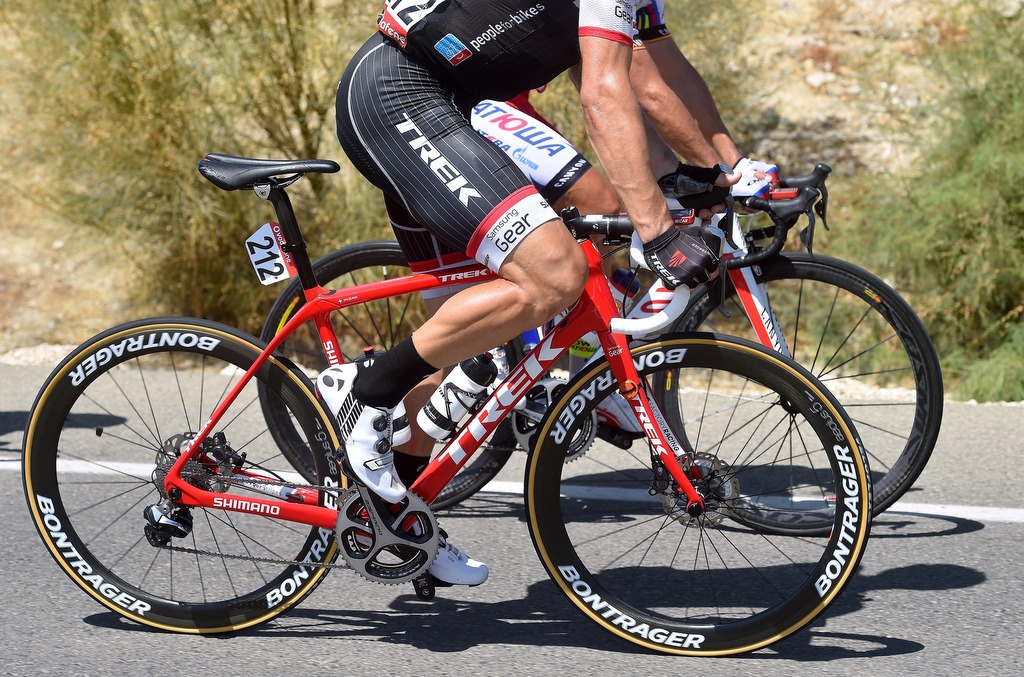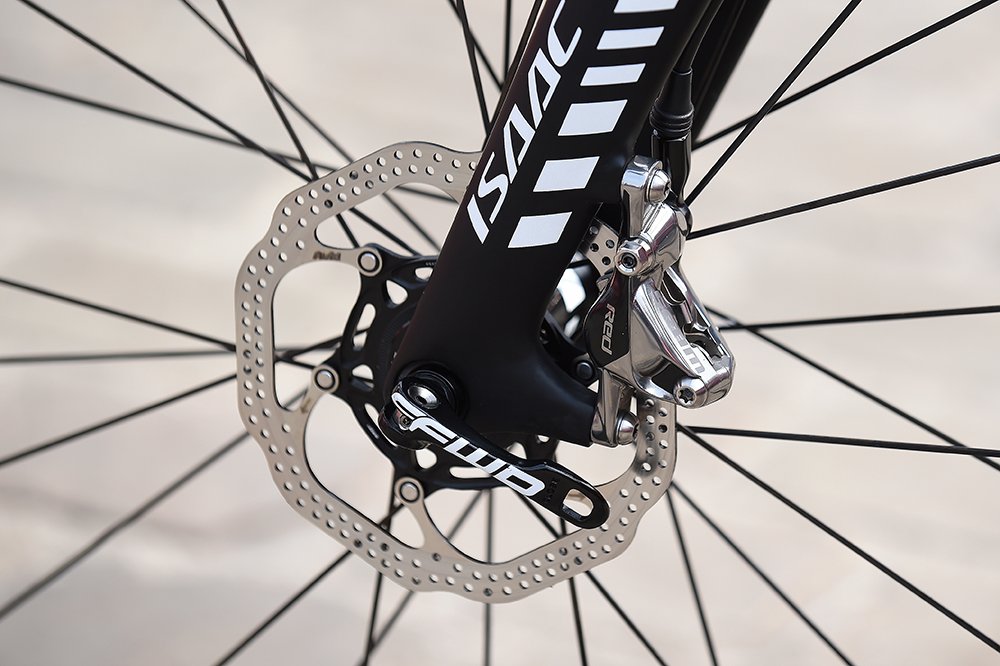UCI approves widespread disc brakes use in 2016 professional peloton
Major teams expected to fully equipped for the spring Classics





The UCI has announced it will continue to test the use of disc brakes in 2016, with men and women professional riders allowed to use the new braking technology in races from January 1. If this wider phase of testing is a success, disc brakes will officially become legal across the sport from 2017.
Cyclingnews understands the second testing phase will permit every rider in a team to use disc brakes in 2016 and in every major race. This is expected to spark widespread use of disc brakes during the 2016 season.
Some teams told Cyclingnews that they will not have disc brakes bikes ready for every rider from the start of the season but Cyclingnews expects that disc brakes will be widespread in the professional by the time of the spring Classics in April. Shimano and Sram have already launched their disc brake systems, with Campagnolo apparently close to completing their testing so that four professional teams can use disc Campagnolo brakes during 2016.
The use of disc brakes in 2016 was given final approval during a UCI stakeholders meeting in Basel on Friday. In a press release, the UCI said all "stakeholders, riders, mechanics, organisers, neutral service providers, teams and the bicycle industry, represented by the World Federation of the Sporting Goods Industry (WFSGI), have decided to continue the trial of disc brakes in professional road racing in 2016."
The de facto introduction of disc brakes will create a mixed peloton, with some riders using disc brakes and others on traditional caliper brakes. There have been concerns that this could cause crashes due to different braking techniques and braking times. However bike manufacturers are pushing for widespread disc brake use as soon as possible and believe a mixed peloton is a not a problem.
Several teams and riders tested disc brakes in the second half of 2015, with the new system widely considered an improvement on caliper brakes, especially in the wet. However some riders are concerned about different braking times in a tightly packed peloton and burn injuries from contact with hot disc in crashes. Wheel changes during races will be slower due to the use of through-axels.
Do you agree with the introduction of disc brakes in the professional peloton? Lets is know via our Twitter vote.
Get The Leadout Newsletter
The latest race content, interviews, features, reviews and expert buying guides, direct to your inbox!

Stephen is one of the most experienced member of the Cyclingnews team, having reported on professional cycling since 1994. He has been Head of News at Cyclingnews since 2022, before which he held the position of European editor since 2012 and previously worked for Reuters, Shift Active Media, and CyclingWeekly, among other publications.